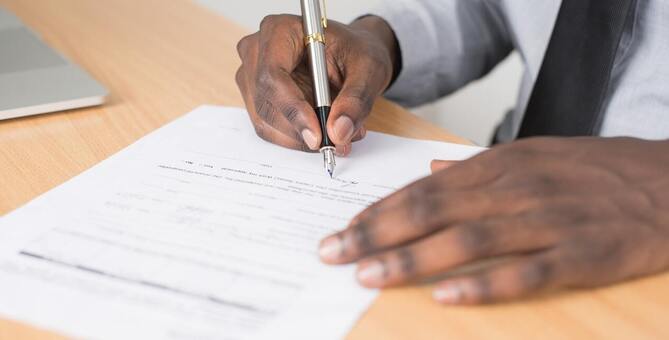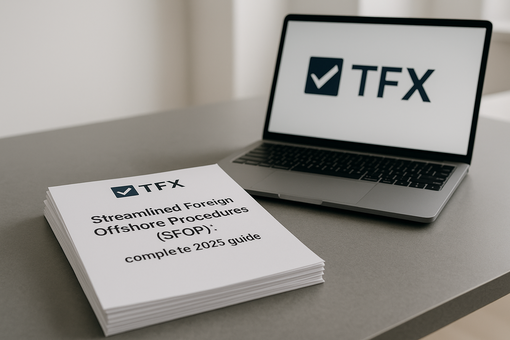Can Americans buy property in France? A complete guide for US citizens

Dreaming of sipping coffee under lavender-filled skies or enjoying sunsets on the Riviera? More Americans are making that dream a reality by buying property in France – whether for retirement, investment, or simply the joy of French living.
With nearly 200,000 Americans living in France and thousands more investing from abroad, France continues to attract buyers drawn by its rich culture, stable real estate market, and exceptional lifestyle.
Why France captivates American homebuyers
- Affordable luxury compared to US prices – Americans find that buying a house in France often costs significantly less than comparable real estate in major US cities, even in highly desirable regions like Bordeaux or Nice.
- Rich cultural heritage – US citizens enjoy buying a house surrounded by historic castles, medieval villages, and timeless architecture that offers a truly unique European lifestyle.
- Stable real estate market – France's tightly regulated real estate sector protects foreigners during the buying process, ensuring security and transparency when investing in French property.
- Inheritance protections – Buying a house in France provides American expats with clear succession laws that allow property to pass efficiently to heirs, supporting long-term family investment plans.
Can Americans legally purchase properties in France?
Many USA citizens have a burning question in their minds, and it is "Do Americans own property in France without major restrictions?" The answer is yes, there are no legal barriers preventing Americans from purchasing French property, whether as a vacation home, investment, or full-time residence.
However, some French banks may hesitate to offer mortgages due to US tax regulations like FATCA.

Do you need a visa/residency to own property in France?
Buying property in France as an American is a separate process from securing the right to live there. You can own French property without needing a visa – but if you want to stay long-term and enjoy your new home beyond short visits, you'll need to navigate France's residency rules.
Long-stay visa options
- Visitor visa (VLS-TS visitor) is ideal for buyers who want to live in France but not work. You'll need proof of accommodation, valid health insurance, and financial resources of at least €16,525 per year.
- Retirement visa for retirees buying property and settling in France without employment. You'll need to show sufficient pension income and private health coverage.
- Family reunion visa if you're joining close family already residing legally in France, this visa can support your long-term stay after purchasing property.
- Professional activity visa if you plan to buy property and run a business or work in France, this visa allows self-employment or company ownership under certain conditions.
Residency:
As a United States citizen, you can visit France for up to 90 days in any 180-day period without a visa. Buying property does not automatically grant residency rights.
vs
Tax residency:
If you spend more than 183 days in France, make it your main home, or earn most of your income there, you're considered a French tax resident and taxed on worldwide income.
Pathway to citizenship
Step 1: Obtain a long-stay visa and establish legal residency.
Step 2: After five continuous years of residency, apply for a carte de résident (permanent residence permit).
Step 3: Maintain residence, integrate into French society, and meet language requirements.
Step 4: Apply for French citizenship through naturalization in your local prefecture.
Costs of buying property in France
Buying a home in France can feel like living the dream – but understanding the full cost picture helps avoid surprises. Beyond the purchase price, American buyers should plan for ongoing ownership costs such as property taxes, maintenance, and insurance.
- Property prices vary greatly by region: Urban hubs like Paris demand premium prices of its city centre averages soar to €12,479/m² (€10,000–€15,000); outside the centre €8,352/m² (€6,500–€10,000), while charming rural areas offer incredible value for money.
- Insurance is mandatory: Home insurance policies typically cost €200–€500 annually, depending on property value and coverage level.
Purchase costs & fees
| Cost category | Estimate (as % of price or flat fee) |
|---|---|
| Notary fees | 2.5% – 5% (regulated scale based on purchase price) |
| Stamp duty (Droit de Mutation) | 5.8% for older homes, 0.7% + VAT for new builds |
| Real estate agent commission | Typically included in listing price |
| Annual land tax (taxe foncière) | €10–€20 per m² depending on location and property type |
| Second home tax (taxe d’habitation) | 3% of annual rental value (primary homes now exempt) since 2023 |
For any American wondering if a USA citizen can buy property in France – the answer is yes. French law welcomes foreign buyers, and real estate there remains stable and attractive.
Understanding these costs upfront helps make the dream of French homeownership a smart financial reality.
Steps to buying a house in France
Step 1: Find your perfect property – work with a realtor who understands buying real estate in France and take advantage of virtual tours to explore options before you travel.
Step 2: Make an offer – submit your bid through your agent and negotiate until both sides reach a deal.
Step 3: Lock it in with a preliminary contract – sign the compromis de vente, get your 10-day cooling-off period, and review property reports like the Dossier de Diagnostic Technique.
Step 4: Pay the deposit – transfer 5% to 10% of the purchase price into the notaire’s escrow account while they conduct all legal checks.
Step 5: Seal the deal – after 2–4 months of due diligence, meet with the notaire for the final signing – the acte de vente – and collect your keys.

French bank accounts – a practical advantage
Purchasing a house in France as an American involves careful financial planning – and having a French bank account simplifies the process. While not legally required, it becomes extremely useful when owning real estate in France for handling bills, taxes, and local payments.
Some French banks are cautious due to IRS reporting rules under FATCA – but once you have a French address, your options expand. In the meantime, currency exchange specialists like Currencies Direct can help manage your transfers smoothly.
Mortgage challenges for Americans in France
Options for financing
French banks hesitate to lend to Americans due to the Foreign Account Tax Compliance Act (FATCA), implemented in 2014. The law’s complex reporting rules create costly compliance issues for lenders.
While some French banks may consider loans, most require a sizable deposit – often 30% or more. Many Americans turn to private financing, international brokers, or leverage US-based funds to complete their property purchase.
Requirements
Lenders demand thorough financial transparency from American applicants. You’ll need to present multiple years of tax returns, bank statements, and proof of stable income.
FATCA adds strict disclosure requirements, making full financial disclosure essential on both sides of the Atlantic. A strong debt-to-income ratio, clear purpose for the property, and solid credit history strengthen your approval odds.
Understanding French taxes as an American owner
- Property taxes apply yearly
France imposes taxe foncière and taxe d’habitation. Taxe foncière is due by mid-October, while taxe d’habitation on second homes must be paid by mid-December. Late payments trigger a 10% penalty.
- Income tax applies if you rent out
Rental income is subject to French income tax at progressive rates up to 45%, plus social charges. Returns are due between May and early June, depending on your department.
- Capital gains hit second homes
Capital gains on French property sales reach 36.2% for French tax residents. Your primary home is exempt. After 22 years of ownership, capital gains tax is eliminated, while social charges disappear after 30 years.
- Inheritance rules are strict
As a tax resident, your worldwide estate may face French inheritance tax. Children receive a €100,000 exemption per parent, with rates climbing from 5% to 45%. Spouses remain fully exempt.
- Wealth tax applies to high-value properties
The real estate wealth tax (IFI) applies to assets over €1.3 million. IFI returns must be filed by mid-June, with payment due by September 15.
- Double taxation relief exists
The US-France tax treaty and IRS Form 1116 help offset US taxes with French taxes paid. Many foreigners eliminate their US tax liability entirely through these credits.
US tax obligations for expats
Owning real estate in France doesn’t exempt Americans from US tax obligations. You must report your foreign property, rental income, and capital gains on your US tax return – plus file FBAR if your foreign accounts exceed $10,000, and FATCA Form 8938 for larger foreign assets.
US expats automatically have until June 16, 2025, to file, with our free extension services available through October 15 or December 15 – though any taxes owed are still due by April 15.
Simplify your real estate purchase
Owning real estate in France brings incredible experiences – but navigating tax rules across two countries can quickly feel overwhelming. From property taxes to reporting foreign assets, having a trusted expert by your side makes all the difference.
Our specialists at Taxes for Expats will handle the complexities, ensure full US compliance, and help you optimize your tax position while enjoying your property abroad.




